TRUSTED

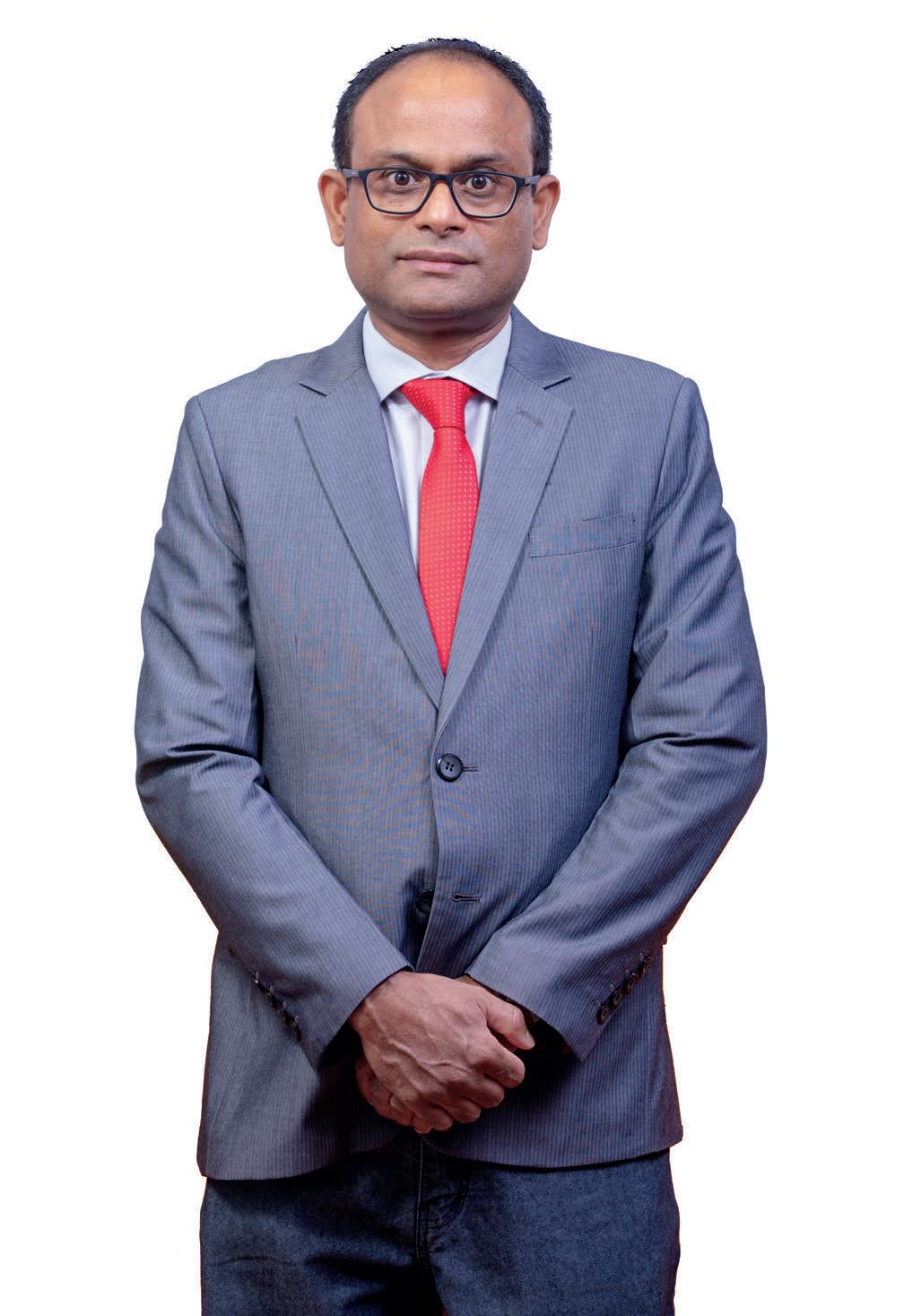



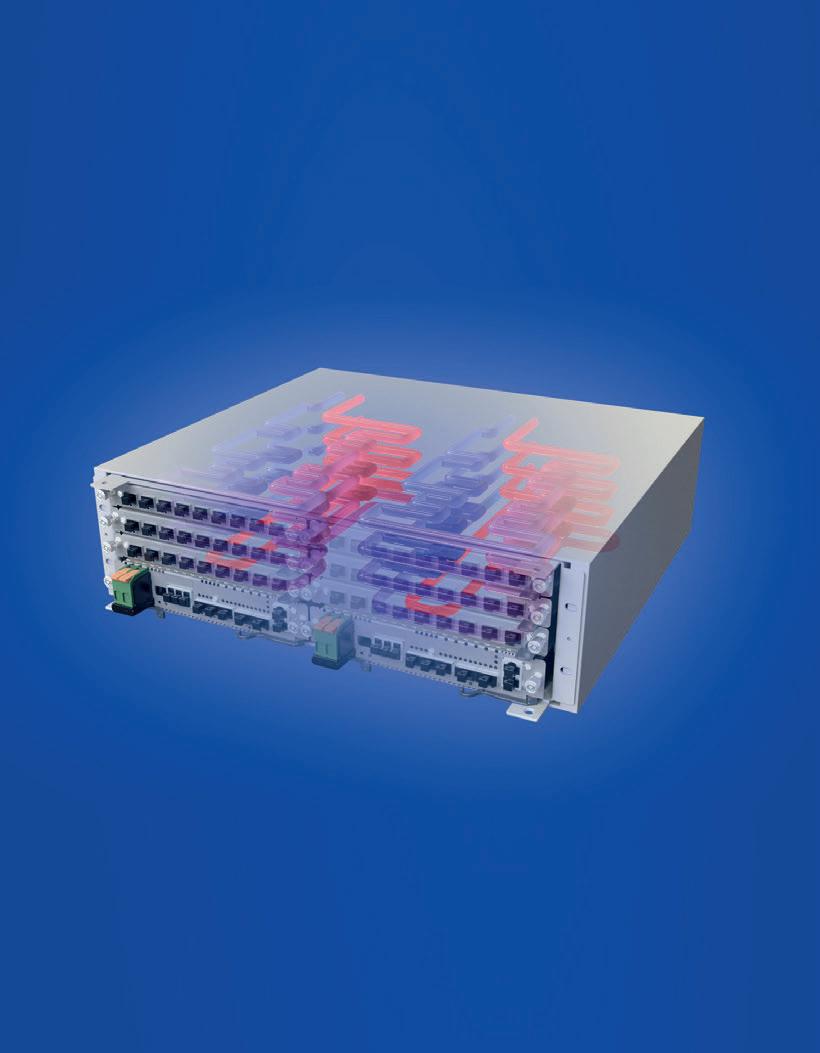
The editorial staff of MEA Business are committed to reporting the positive business developments in the Middle East and Africa, as well as highlighting the business opportunities that already exist in the two regions.
We also want to provide a platform for business leaders to share ideas, engage in constructive debates and form strategic partnerships. Our ultimate aim is to equip business leaders and professionals with the practical and tactical skills to thrive in the Middle East and Africa. With an emphasis on positive news stories, case studies and inspirational interviews, MEA business will inspire readers towards personal development and overall business success.
The magazine is arranged to provide clear and concise informative sections including news sections on the Middle East and Africa, CEO interviews and market updates. The magazine and news service we offer are available on a variety of platforms, these include our printed magazine, e-magazine, website, and social media. Furthermore, we include augmented reality elements in some of our features to provide our readers with unparalleled coverage on the latest developments.
MEA Business also publishes several sector specials throughout the year. These special issues are produced to coincide with important industry exhibitions and events. This month’s issue is a Technology Achievement Awards special. I hope you will also join me in congratulating all the winners.
 Kenneth Mitchen Publisher, MEA Business
Kenneth Mitchen Publisher, MEA Business

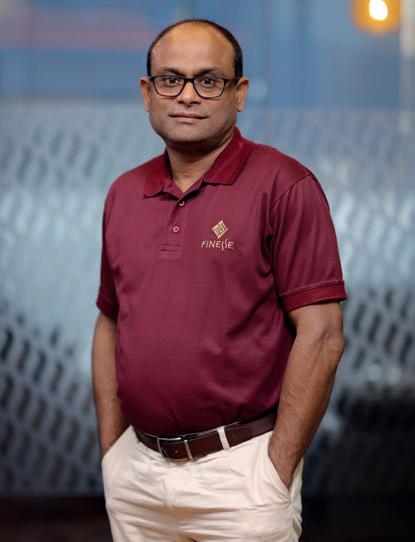




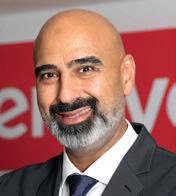



The new API aims to save Internet users 500 years of time every day by removing the need for CAPTCHAs. The new technology works behind the scenes to confirm a human is present during a web interaction
In addition to being the speed bump of the Internet, the tests have been critiqued for their lack of accessibility, assuming all Internet users have the physical and cognitive capabilities to solve them. Privacy is also at risk; for example, Google’s reCAPTCHA, which dominates the market, may ask for users to log in to their Google account as a form of verification. No one should have to give up private information when simply trying to prove they are not a robot. Cloudflare’s solution is a drop-in replacement for reCAPTCHA that preserves the user’s privacy.
“Cloudflare is taking one of the most hated pieces of Internet technology, and making it easier, more secure, and more private for everyone to use,” said Matthew Prince, co-founder and CEO of Cloudflare. “Similar to our 1.1.1.1 app that makes every user and the Internet safer, we’re excited to share Turnstile with developers of any size and anywhere, for an improved and more private end user experience.”

Turnstile is a smarter, invisible CAPTCHA alternative. The solution automatically chooses from a rotating suite of browser challenges that work behind the scenes, looking for signals there is a human user. Turnstile can fine-tune the difficulty of the challenge, presenting harder challenges to visitors that exhibit nonhuman behaviors. Additionally, Turnstile recognizes Private Access Tokens from users on the latest versions of macOS or iOS, allowing Turnstile to validate a device with the help of the device vendor, and without collecting, touching or storing user device data.
Cloudflare, Inc., a leading security, performance, and reliability company, recently announced Turnstile, a simple, private way to replace CAPTCHA (Completely Automated Public Turing test to tell Computers and Humans Apart) and help validate humanity across the Internet. Now any site owner can replace CAPTCHAs through a simple API, whether they’re a Cloudflare customer or not.
CAPTCHA has long been regarded as a terrible user experience that sacrifices privacy by harvesting user data. They typically come in the form of a challenge that is meant to be difficult for a computer to pass but simple for a human, such as identifying stretched letters or numbers, or things like crosswalks or stop signs. It is estimated that collectively, humans waste 500 years a day trying to solve CAPTCHAs.
Turnstile now has the same stable solve rate as previously used CAPTCHAs. With this technology, Cloudflare reduced their own use of CAPTCHA by 91% and reduced the visitor time spent in a challenge from an average of 32 seconds to an average of just one second to run the non-interactive challenges.
Turnstile is now available for any developer to use on their site, regardless of if they are a Cloudflare customer.
It is estimated that collectively, humans waste 500 years a day trying to solve CAPTCHAsMatthew Prince co-founder and CEO of Cloudflare


Kingdom’s National Cyber Security Centre says protecting Bahrain’s IT infrastructure from cyber-crime is a ‘top priority’ ahead of three-day conference this December
this summit, we aim to become the largest gathering of cybersecurity professionals in Bahrain for government regulators, industry professionals, and solution providers to discuss and devise strategies to secure their cyber and IT infrastructure.”
“Bahrain is the first country in the GCC to adopt a nationwide ‘cloud-first’ policy and benefits from a strategic geographical location, availability of talent, cost competitiveness, ownership structure, and a well-defined industry organisation. As a result, the country has already attracted global IT businesses looking to expand their footprint across the Middle East”, Almurbati added.
The first Arab International Cybersecurity Summit (AICS) will take place from December 6-8 at Exhibition World Bahrain in Manama. The inaugural three-day summit, jointly organised by Messe Frankfurt Middle East and Bahraini event specialists Faalyat WLL, will focus on Empowering Global Cooperation in Cybersecurity and include industry workshops, expert panel discussions, case studies, simulation games and table-top exercises accompanied with Capture the Flag, Hack Arena and much more.
Hosted by Bahrain’s National Cyber Security Centre (NCSC) and held under the patronage of His Royal Highness Prince Salman bin Hamad Al Khalifa, Crown Prince, Deputy Supreme Commander, and Prime Minister of the Kingdom of Bahrain, the sector’s newest conference and exhibition aims to bring together government and industry experts from across the globe.
“The Arab International Cybersecurity Summit comes at a perfect time for us as

we are over halfway through the delivery of our National Cyber Security Strategy,” said Sheikh Salman bin Mohammed bin Abdulla Al Khalifa, CEO at NCSC at the launch event yesterday, which included a panel discussion on Bahrain’s growing cybersecurity market as well as insights from some of the country’s leading experts. “Siloed into five key pillars, this new platform will help us find international partners to better deliver our strategic goals of resilient cyber defences, effective cyber security governance, and standards, building a cyber-aware nation, collective defence through partnership and cooperation, and cyber workforce development.”
Also in attendance at the launch at the Four Seasons Hotel in Manama, Amal Almurbati, Managing Director and board member of Faalyat WLL, added: “We are proud to organise the first edition of the Arab International Cybersecurity Summit, an event that will be unique, innovative, and will undoubtedly benefit the Kingdom. Through
Echoing this sentiment was Simon Mellor, CEO of Messe Frankfurt Middle East. “The Kingdom of Bahrain sits at the very forefront of ICT developments across the region with digital transformation at the heart of all government mandates globally,” said Mellor. “With its Cloud First Policy, Bahrain is committed to accelerating the transition to the cloud. This transition presents a new set of opportunities for cybersecurity companies offering products that secure cloud-based software and infrastructure. The Arab International Cybersecurity Summit brings together key industry stakeholders, providing delegates and government representatives with an unrivalled opportunity to meet and interact with leading international experts in the field and gain valuable learnings about the latest technological developments driving and protecting businesses.
“Through multiple content delivery platforms and activations, the event promises to be Bahrain’s largest gathering of cybersecurity professionals and provides access at the highest level to local and international government.”
The Arab International Cybersecurity Summit has already gained support from numerous strategic partners, including the Ministry of Interior, Economic Development Board, Telecommunications and Regulatory Authority, the Central Bank of Bahrain, and the UAE Cyber Security Council.
To find out more or register to attend, please visit: www.arab-cybersecurity.com
Scan here to access Finacle’s latest Cloud Banking Point-of-view





Banks today are missing scale and speed in cloud adoption - our research indicates that the full value of cloud transformation is only realized upon migrating at least 60% of your bank’s workload to cloud. Yet most banks are far from that milestone, and they lack a clear roadmap to get there.
Infosys Finacle has made huge investments and created multiple proven use cases in cloud technology. Access our latest point-of-view 'Banking on Cloud: the next lap' for a detailed roadmap of how banks can accelerate their cloud adoption journey with agility and decisiveness.

The winners of the MEA Business Technology Achievement Awards 2022 were recently announced. The awards recognise exceptional excellence in the technology sector. The Award winners’ presentations will take pace during GITEX Technology Week from the 10 – 14th October 2022
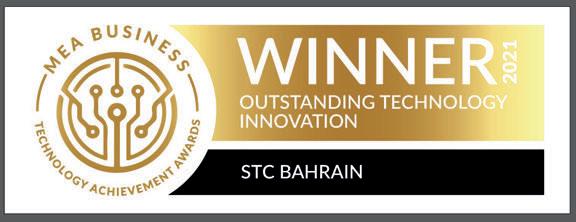
Selection of the Award Winners and Partners
Media
Ground-breaking products/services (Achievement Award)Telecoms
Nexign Revenue Management
Exceptional Products/Services (Achievement Award) Digital Transformation Protiviti
Ground-breaking products/services (Achievement Award)Ecommerce Tech Mahindra
New Technology (Achievement Award) Digital Marketplace Solutions Tech Mahindra
Exceptional Leadership - (Personal Achievement Award) Digital Transformation
Ram Ramachandran, SVP and Head – MEA, Tech Mahindra
Outstanding Sector Leadership and Growth (Achievement)Telecommunications Mobily
Exceptional Leadership - (Personal Achievement Award)Telecommunications Alaa Malki, CTO, Mobily
New Technology (Achievement Award) Satellite Services Eutelsat Quantum
Ground-breaking products/services (Achievement Award)Hardware Nokia - FP5 Network Processer
Exceptional Products/Services (Achievement Award) Sustainability Nokia - Liquid Cooling for Base Station
New Product/Service Launch (Achievement) Telecommunications Nokia - 5G Edge Slicing in Next Generation VPN
New Technology (Achievement Award) Mobile Services China Mobile International
Innovative Collaborations and Partnerships (Achievement Award) Telecommunications China Mobile International
Ground-breaking products/services (Achievement Award) Open Nomination Award ZainTech
Innovative Collaborations and Partnerships (Achievement Award) Cloud Services ZainTech
Exceptional Products/Services (Achievement Award) Security and Cyber Security ZainTech
Exceptional Products/Services (Achievement Award) Telecoms Syniverse
Exceptional Products/Services (Achievement Award) Metaverse 5dVR New Technology (Achievement Award) Software Avaya
Exceptional Products/Services (Achievement Award) Software Ministry of Islamic Affairs, Dawah and Guidance
Exceptional Leadership - (Personal Achievement Award) Digital Transformation
Outstanding Sector Leadership and Growth (Achievement Award) Cloud Services
Dr. Layla Al-Qasem, Undersecretary for planning and digital transformation, Ministry of Islamic Affairs
CISCO - IOT Control Center, Cloud Service
Ground-breaking products/services (Achievement Award)Hardware CISCO - IoT portfolio
New Technology (Achievement Award) Hardware
Outstanding Sector Leadership and Growth (Achievement Award) 5G Services
Exceptional Products/Services (Achievement Award) Smart Cities
CISCO - Routed Optical Networking
Batelco
Batelco - Sustainability Programmes
Batelco - Omni-Channel eCommerce Experience New Technology (Achievement Award) ERP Software Epicor
New Technology (Achievement Award) Ecommerce
Exceptional Products/Services (Achievement Award) Cyber Security Dragos
Ground-breaking products/services (Achievement Award)Financial Services
Magnati
Innovative Collaborations and Partnerships (Achievement Award) Sustainability Microsoft
Ground-breaking products/services (Achievement Award)Robotics Tesla
New Technology (Achievement Award) Financial Services stc Bahrain (stc pay)
Best New Product/Service Launch (Achievement Award)Cloud Services
Aruba, a Hewlett Packard Enterprise company
Pulse report documents ongoing shift in employee attitudes and expectations in the world of the hybrid office, and a widening disconnect between managers and their remote-working staff
Some 85% of decision makers worldwide say the shift to hybrid work has made it challenging to know whether people are being productive, despite 87% of employees attesting they are now more productive than they were when they worked in an office full time. Alongside this productivity paranoia, which indicates a growing disconnect between employees and supervisors, workers on both sides of the managerial divide are feeling the stress. Almost half (48%) of employees and more than half (53%) of their managers are already reporting the effects of burnout.
To resolve the disconnect, and to help leaders drive clarity and alignment while saving on labour hours, Microsoft has developed tools for productivity, collaboration, and employee empowerment. Viva Pulse is a new app that enables team leaders to gain frequent, confidential feedback on their team’s experience. And new integration in Viva Goals with Microsoft Teams, Azure DevOps, Power BI, and others brings OKRs into everyday workflows.
Alargely unjustified concern over productivity, or “productivity paranoia”, is sweeping global enterprises in the age of hybrid work, even as employees increasingly look to new horizons for a workplace that develops their talents and encourages a more social atmosphere. These were the key findings in Microsoft’s “Work Trend Index (WTI) Pulse Report 2022: Understanding Your Workforce”, released today.
“Our Work Trend Index puts a finger on the pulse of the global employee experience and the challenges faced by employers,” said Waseem Hashem, Business Group Director, Modern Work and Security at Microsoft UAE. “What emerges in this year’s study is this anxiety among managers over productivity, which
the data suggests may be unwarranted. This could be resolved by just talking to employees, but unfortunately, just 43% of employees say their company solicits feedback at least once a year.”
Another visible trend in this year’s WTI pulse report is the importance employees place on the social aspect of their jobs. While 82% of business decision-makers expressed concern over getting employees back to the office, 78% of them agree with 73% of employees that they need a better reason to commute than just company expectations. And 84% of employees said they would be motivated to return by the promise of socialising with co-workers, while 85% would be motivated by rebuilding team bonds.
Since the data shows the need for interaction with colleagues to encourage people to work in person, employers must find solutions that modernise their communication and connection between employees and leaders. Viva Amplify is a new app that allows leaders and other communicators to elevate their message and reach employees wherever they are, with consistency and impact. Viva Engage enables digital community building through
87% of employees attesting they are now more productive than they were when they worked in an office full time
conversations and self-expression tools.
It includes Leadership Corner, a space to invite employees to interact directly with leadership, share ideas and feedback, participate in organisation-wide initiatives, and more.
The index also provided evidence for the necessity of robust professionaldevelopment programmes, which remain a determining factor of talent retention. More than half (56%) of employees and more than two thirds (68%) of business decision-makers say the growth opportunities in their organisations are insufficient to keep them there in the long term. And 55% of employees say the best way for them to develop their skills is to change employer.


Employees are communicating that if they cannot learn, they will leave. Companies must therefore build learning cultures and provide opportunities for employees to build new skills. Viva Learning allows employees to discover, share, and track the latest learning content (from required to recommended training) from Microsoft Teams. And new integrations between Viva Learning and LinkedIn Learning will make it even easier to access content from the LinkedIn Learning Hub from within Teams. The integration will include in-app playback, completion syncing, a new seamless login implementation, and a consolidated admin experience for learning content source configuration. Additionally, Answers in Viva is a new chat-like experience that uses AI to match employee questions to answers and experts across the organization to help put collective knowledge to work for all employees.
“Again, skilling plays a starring role in the talent-retention story,” said Hashem. “Employers must come to terms with the stark realities of hybrid work and build a compassionate culture of transparency and trust where digital tools and digital skills are leveraged to enhance the employee experience.”
This is amplified by new GITEX GLOBAL 2022 launches of X-VERSE, sponsored by TMRW Foundation in collaboration with Decentraland, one of the world’s most immersive metaverse journeys featuring 28 experiential brands; and Global DevSlam, the Middle East’s largest ever coder and developer meetup.
GITEX GLOBAL 2022 welcomes an unprecedented 52% new exhibitors. The show this year will include additional themes such as the metaverse, a decentralised future of the internet, and the sustainable global digital economy
H.E. Omar Al Olama, Minister of State for AI, Digital Economy & Remote Work Applications, said: “GITEX this year is bigger than ever. It spans two million sq. ft. with over 5,000 exhibitors from more than 90 countries, which makes this truly the biggest tech show in the world. This year, my office has partnered with GITEX to ensure that we’re not just showcasing technology, but actually inventing and developing technology.”
Trixie LohMirmand, EVP of Events Management at DWTC, GITEX GLOBAL’s organiser, added: “GITEX serves a profound purpose of enabling and accelerating the digital economies of UAE and many of its alliance partners through connecting earnest stakeholders with outstanding minds from the world, and materialising these connections into actionable partnerships.”
Dubai will transform into the ultimate digital epicentre of the world next month, as the UAE hosts GITEX GLOBAL, one of the world’s largest tech show, converging the most advanced companies and best minds to deep dive into the making of the Web 3.0 economy.
From 10-14 October 2022 at the Dubai World Trade Centre (DWTC), GITEX GLOBAL will present seven multi-tech
themes experimenting in the metaverse, a decentralised future of the internet, and a sustainable global digital economy.
The event’s record size and continued expansion mirrors the ambitions of the UAE and region’s digital transformation, as government initiatives such as the National Program for Coders, the Dubai Metaverse Strategy, and Next GenFDI propels the UAE to the forefront of the global digital economy.
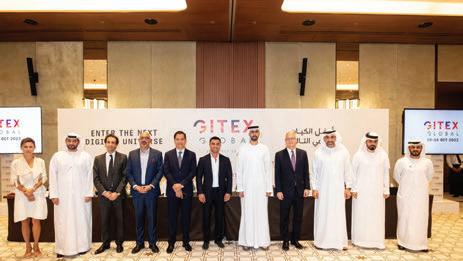
GITEX GLOBAL 2022 welcomes an unprecedented 52% new exhibitors choosing the show and the UAE as the first choice in their market access strategies. North Star will host the biggest Unicorn meetup of the year in Dubai, with 35 Unicorns from 15 countries looking to expand in one of the world’s fastest-growing markets.
Furthermore, XPENG, a leading tech company and EV manufacturer, has chosen GITEX GLOBAL to host the world’s first public flight of its pioneering eVTOL flying car X2 with the support of official partner, the Dubai Chamber of Commerce.
Processing Comprehensive and end to end card processing solutions personalised to your requirements


Fintech
proof digital payment innovations for tomorrow’s customers
Merchant acquiring State of the art payment technologies that seamlessly empower potential for businesses
Since the outset, AFS has paved the transformation of the region’s payments systems. Combining our MENA experience and international expertise we have developed comprehensive digital payments solutions that consistently surpass our client’s needs. Between our processing, acquiring and fintech verticals, we have empowered financial institutions and businesses and we have energised customers with reimagined digital payments experiences that are faster, better, and more secure
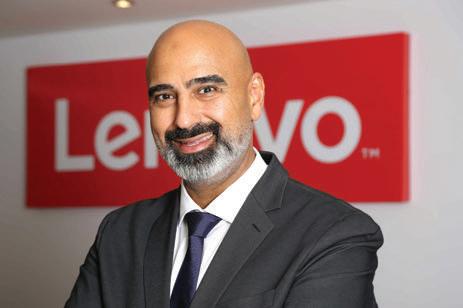
As technology enters a new era, there is an increasing need for efficient HPC, that is more readily available, and can offer ‘partnerships’ for artificial intelligence (AI) projects.
The three key trends that have been identified include exascale computing - which is driving high-performance computing to a new threshold of performance and power efficiency, artificial intelligence - which is converging with HPC to unlock some of the toughest problems facing humanity, and HPCaaS (High-Performance Computing as a Service), which is opening up HPC to a new audience.
Commenting on the trends, Alaa Bawab, Lenovo General Manager Middle East and Africa said: “The trends are going to define the potential of HPC through this decade and beyond. When it comes to the biggest problems facing humanity, from disease to climate change to weather prediction, HPC is working hand-in-hand with AI to provide solutions. HPC is rapidly evolving, with exascale computing technologies providing new breakthroughs which will empower the discoveries of the futureand ‘as a service’ models mean that this
has revealed top trends that will shape the future of high-performance computing
empowering technology is available to more researchers than ever before.”
Exascale computing is the threshold of a quintillion calculations per second - that’s 1,000,000,000,000,000,000 per second. It has been widely hailed as heralding a new age in high-performance computing, allowing scientists to achieve ever greater insights, such as modeling the climate and understanding the human brain more efficiently than ever before.
Exascale computing focuses on efficiency, and how to squeeze the best possible performance at the very boundaries of the laws of physics. Similarly, with exascale computing, there are also huge challenges around energy use and sustainability around achieving that level of performance within the limits of the data centre. To be more sustainable, highperformance computing systems need to
extract value at petascale for example (a mere 1,000,000,000,000,000 calculations per second).
When it comes to cutting-edge research, there is a convergence between artificial intelligence and HPC, and the two technologies work symbiotically a lot of the time. One of the main drivers for high-performance computing is training AI models, which has seen demand for compute power soar. There’s also a crossover where AI is deployed in a traditional HPC workflow to make the research more productive.
Powered by HPC, AI and machine learning (ML) are helping researchers to deal with some of the biggest problems humanity faces. From discovering ways to feed the global population in the coming decades to diagnosing sight-threatening retinal disorders, HPC systems are offering universities and global companies the
sources such as satellite imagery, weather reports, and even sensors in fields.
In medicine, artificial intelligence, powered by HPC could open up a whole new way of treating illness, with AI delivering the insights required to tailor treatments genetically to each individual patient. ‘Personalised medicine’ is predicted to reshape the way we treat illness, but unlocking its potential requires an enormous amount of computing power.
Lenovo’s Genomics Optimization and Scalability Tool (GOAST), which relies on HPC, has accelerated the process of sequencing a human genome from more than 150 hours to just 18 minutes, bringing the dawn of personalised medicine within reach.
Just as in most other areas of computing, ‘as a service’ models are changing the way HPC is consumed and making it more accessible to researchers around the world.
drive performance efficiently. This level of performance also requires efficient cooling systems for better reliability and performance. Lenovo uses Neptune™ warm water cooling at Lenovo which delivers more than 90% heat removal efficiency and expends 40% less power to cool a rack of servers than traditional air cooling.
Lenovo has a design philosophy described as ‘exascale to everyscale’, meaning the breakthroughs from exascale computing cascade down into other levels of high-performance computing. Most businesses don’t need an exascale system costing hundreds of millions - but can still
computing horsepower to drive cuttingedge AI and ML research.
Research powered by AI and HPC is solving the problem of reduced food yields caused by climate change. Food crop yields are already falling - and global food production will have to increase by 50% to keep up with increasing demand as populations grow.
The end result is that humanity needs new, more efficient ways to grow food. HPC will be central to solving this problem, using powerful, efficient computing infrastructure aligned with AI to crunch enormous amounts of data harvested from
Cloud-based high-performance computing is the fastest-growing area of high-performance computing, allowing organisations to rapidly add additional capacity. The ‘as a service’ model is growing faster than any other, with 15% of the market already in the cloud.
With HPCaaS customers can pay monthly with very minimal capital investment, reducing total cost by eliminating over-provisioning. Customers can get the best and newest tech in highperformance computing, refreshing it when it becomes obsolete. When it comes to adding more power, all customers have to do is ask.
Cloud-based high-performance computing is the fastest-growing area of highperformance computing
In medicine, artificial intelligence, powered by HPC could open up a whole new way of treating illness
Magnati recently launched a new technology that is set to revolutionise shopping. Tell us more about it.
Magnati MetaV is the region’s first metaverse platform enabling users to experience e-commerce in a new, immersive way. It will completely transform the shopping experience for consumers, who will be able to shop, learn, play games, attend events and more through a seamless
online experience, all from the comfort of their homes.
Customisable avatars can explore a discovery-driven online environment where consumers can see and feel retail offerings in multi-dimension. Shoppers will be able to explore, pick up and purchase products across a mix of retail categories, including fashion, groceries, gaming, technology and more. They can also purchase tickets and sign up for events to attend virtual concerts, sporting

events and educational courses. With the launch of Magnati MetaV, we are ushering in the next generation of e-commerce, “experiential commerce”.
Why is now the right time to launch Magnati MetaV?
Magnati is at the forefront of technological developments and trends, and we believe that customers are ready for this exciting new technology. The UAE retail landscape is undergoing massive changes; traditionally,
the region has prioritised in-person retail experiences, with a reliance on cash for most transactions and transfers. In recent years, there has been a shift towards e-commerce and digital payments that can be traced to a number of factors, including technological advancement, consumer behavioural changes and COVID-19.
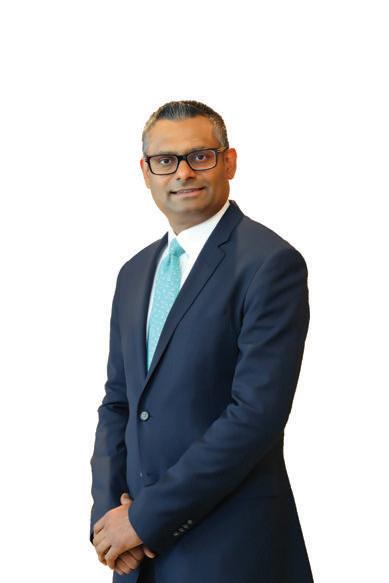
As people move more of their lives online, the metaverse provides an enhanced platform for e-commerce in line with changing consumer habits. Through Magnati MetaV, we are enabling merchants to provide brand new retail experiences to their customers. The metaverse provides users with richer visual and sensory information, as well as improved quality of information, as they shop online.
Given that the metaverse has only recently been applied to the retail sector, is the market ready for Magnati MetaV?
Absolutely. Consumers are always looking for new ways to be engaged, provided that the experience is appealing, participation is seamless, and technology is secure. Magnati MetaV combines all three aspects into a single user-focused platform.
Given that this is a new technology, it is important that there is a bridge that connects the existing ecosystem to the future to encourage user adoption. Hence, Magnati MetaV is the first metaverse platform fully integrated with traditional payment rails and gateways, so that shoppers can pay for products and services through cards, wallets and other existing digital form factors. While shopping in Magnati MetaV will feel entirely new, the payment experience will be second nature for those used to paying by card or digital wallet.
Currently, e-commerce merchants face challenges like high returns to sales, exchanges and drop in sales due to dissatisfaction in customer experience. Merchants may also experience a fall in future sales due to customer dissatisfaction.
These issues arise when customers shop online by viewing 2D images of products, and the product they ultimately receive does not match what they were expecting. Magnati MetaV helps to solve this by providing the tools that let customers experience a product before buying.
Think about how Magnati MetaV can be applied to the hospitality sector. Hotels can create a virtual experience on the metaverse that enables consumers to see and explore in exact detail the rooms they will be booking. This will help to reduce ambiguity and uncertainty for buyers before they book a room.
restricted by physical space limitations. This includes educational institutions, event organisers and sports broadcasters who gain access to virtual venues and arenas with limitless capacities, allowing these merchants to scale quickly and easily. The possibilities are endless, and we welcome retailers to co-create new virtual worlds with us.
Of the many benefits that Magnati MetaV offers, one of the biggest draws is the ability to mimic a shopping experience for users, while offering them the highest levels of convenience. For example, shoppers can be comfortably sitting at home while visiting countless stores in the metaverse, just by controlling their avatar.
We understand that socialising with friends is an important aspect of the retail experience, so building this into Magnati MetaV was a priority for us. Digital avatars, controlled by their users, can socialise with one another while shopping, gaming or attending a concert in the metaverse. Magnati MetaV’s customisable and interactive avatars create a better meeting experience by embodying each user’s physical identity and characteristics.
Magnati’s vision is to transform payments into possibilities. How is Magnati MetaV helping to fulfil the vision?
Magnati’s vision of transforming “payments into possibilities” is about unlocking new growth opportunities for our consumer, government, merchant and institutional clients, while setting a new standard for innovation and delivery in the payments industry.
We have established ourselves as a leading payments company, providing merchant acquiring, consumer payment solutions, government payment solutions, issuer processing and acquiring processing services that deliver improved experiences and increased efficiency for our merchant clients.
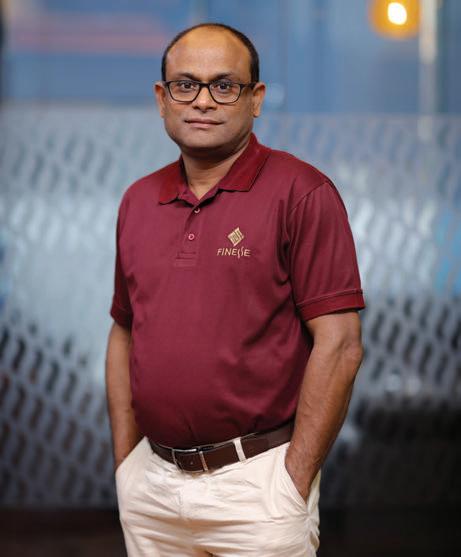
Over the past two years, humanity has faced many challenges. The Covid-19 outbreak has devastated entire economies. Economies are still recovering after the worst pandemic of the century appears to be coming to an end, thankfully. Geopolitical instability is another matter though - countries have been affected on both at domestic and international level, resulting in an increase in distrust. Disruptions have been occurring almost every day in the technology industry. There are more and more cyberattacks, on individuals and businesses, that has resulted in financial and reputation losses. Businesses that were once stalwarts have been undermined by new disruptors. In order to keep their businesses afloat, they have had to invest in innovation to meet the changing needs of their customers. They have gone digital, invested more in cybersecurity, and have invested more in automated technologies to keep up with these changes. Climate change is perhaps our greatest challenge. In recent years, there have been an increasing number of natural disasters, including fires, hurricanes, and droughts.
We face more challenges obviously than those mentioned above, but with the right tools and strong determination, we can
overcome them. Finesse’s initiatives cover a wide range of fields within problems in the technology domain, aiming to make a meaningful contribution in each of them.
Are you noticing developing patterns or trends in regional behaviour specific to the macro-level challenges now facing the world?
Across the globe, leaders are taking meaningful steps to help overcome these challenges. Geographies take different approaches to tackling these challenges, depending on factors such as ideology and government structure.
The UAE, as a whole has been making significant investments in initiatives such as alternate energy to meet the increasing needs of its growing populace, and similarly huge investments in the metaverse economy. Electric cars are also encouraged as a means of reducing carbon emissions. The UAE has also always supported and endorsed enhancements in digitalization of the Government services, and businesses, while also investing in Artificial Intelligence (AI), Robotic Process Automation (RPA) and further investments in cybersecurity.
Which new technologies do you foresee being adopted in the region over the next five to ten years?
As a result of the pandemic and change in customer behavior, businesses are at various stages of their digital transformation journeys. As these companies move up the digitalization maturity level, they will invest in technologies such as artificial intelligence (AI), Robotic Process Automation, Web 3.0, the metaverse, blockchain, and the Internet of Things (IoT) together with advanced cybersecurity solutions.
Since the launch of Finesse, how has the systems integration market evolved in the UAE and the GCC?
Finesse was founded in 2010, and has become one of the region’s leading System integrator (SI). At the beginning of the decade, one of the most notable aspects was that most systems within the

organization worked in isolation for their respective departments, without bringing meaningful results to the organization. There are several reasons for this, including the lack of digitalization initiatives, which were often siloed into certain parts of these organizations.
In the past decade, business leaders have realized the benefits of going digital & automating operations, and have invested in converting the majority, if not all, of their businesses to digital. The Covid-19 pandemic hastened this growth, as businesses realized they would become obsolete unless they changed quickly. These companies have invested in technology solutions like AI chatbots, BI & Analytics, Blockchain, CRM/ CEM, Enterprise Content Management, Zero-Trust infrastructure and cloud security, Robotic process automation, intelligent process automation, and managed IT services.
Yes, absolutely! As far as technology is concerned, the last three years have pushed the world a decade forward. Technology has become an important part
of businesses’ budgets, and governments have encouraged their use to solve everyday problems. As more and more businesses use technology to run their businesses, there are now more disruptors than ever. The advent of the cloud technologies has been a major catalyst in making this happen.
As far as technology is concerned, GCC was a follower until recently - businesses here followed what was happening in the West. By the time GCC businesses started adopting it, they would have been outdated.
Now, things are changing.
The UAE government is leading the way in investing heavily in the latest technology trends, on par with the West. A number of UAE businesses are already using AI, robots, and blockchain, and are investing in furthering these technologies. There is no doubt that the UAE will be among the world’s leading technology centers in a short time. Also, important to note that Dubai is one among the first to have come out with the vision of a metaverse economy.
Finesse has been in the business of Software development & technology integration for more than a decade now. Supporting multiple customers across domains, Finesse has refined the process of helping businesses chart out their digital transformation journeys, as per the needs of their respective domain. Be it a pure brick-and-mortar business or a business just entering the digital world, Finesse has helped chart the best paths businesses can take to experience the best outcomes.
In the past few years, the company has grown to support over 350 enterprise clients across 10 different global locations with over 450 employees.
The financial services sector is in the midst of a profound digital transformation journey and banks in the Middle East are preparing for the next major phase of digitalisation as custom er experience is emerging as the new point of sale. McKinsey said that the shift to digital banking has happened quickly and is being accelerated by existing trends such as the increased use of digital channels for diverse transactions that have intensified over the last two years.
The outbreak of the pandemic created unique opportunities in the financial service sector by accelerating and strengthening the transition towards digital banking at unprecedented speeds, but it also created some exceptional challenges for the industry including cyberattacks.
The FS-ISAC, an industry group dedicated to reducing cyberattacks in the financial services sector, warned in March that banks should expect more or even worse cyber threats this year as state-

backed hacking campaigns are expected to mirror geopolitical tensions amid Russia’s war in Ukraine.
The banking group also cautioned that ransomware gangs are retooling to dodge increased scrutiny after an unrelenting year of fighting off cyber threats in 2021. Cybercriminal activities which include fraud, e-commerce data seizure and phishing attacks have increased as banks in the Middle East swing to digital-only models amid new models of operations such as remote working.
However, it is imperative for financial institutions to respect customers’ privacy and secure their data, which in turn can build trust.
Customer data is the linchpin behind digital transformation in the banking sector and financial institutions are responsible for managing the data they collect. Big data is key to bankers. It is the manual that helps them meet customers’ preferences and expectations as well as
Customer data can be a map helping banks navigate toward success and a potential vulnerability to material and reputational loss if not protected, so regional banks are gearing-up to ensure they are fully shielded
explore new avenues of growth or new business models.
The unprecedented global adoption of digital banking services in the past two years widened financial institutions’ data collection and storage tools and as such, banks have amassed troves of consumer data and mines more every day.
Financial institutions are increasingly collecting significant amounts of data as technological innovations have reshaped customer expectations and banks in the Middle East need to understand the clear shift that has happened in customer behaviour.
Data plays a critical role in product development, product management and ultimately enhancing customer experience. McKinsey said that the rapid advancements in financial technologies, the recognized value of data and increasing data literacy are changing what it means to be “data-driven.”
Banks should cultivate the mythical 360-degree view of clients—one that accounts for their current value as well as their potential lifetime value to stay competitive in an overbanked market.
Given how the financial services sector is generally ahead of the curve when it comes to possessing insight into customer expectations and requirements, the ability to spot and iron out any glitches is key to making self-service banking effortless and avoiding reputational damage.
Data’s worth depends on its accessibility and application as customer insight plays a critical role in product development and customer communication in the banking sector. “The cloud is the only place where customer data gains scale, agility, and the power to drive reinvention so a business can soar,” said Accenture.
The use of cloud computing has been an enabler of advanced analytics, as these computer system resources provide a space to both store and analyse large quantities of data in a scalable way, including through easy connectivity to mobile applications used by customers.
Cloud technology such as the software as a service (saas) model offers financial institutions myriad opportunities including easier customer data analytics and sharing, improved marketing time, cost reduction and enhanced flexibility and operational efficiency.
Data is the new gold. Managing data proficiently can also boost banks’ security systems through the detection of fraud signals and analyzing them in real-time using
both customers and financial institutions to deliberate cyberattacks, inadvertent security lapses and vulnerabilities of a relatively immature and unregulated global internet.
KPMG stated that the proliferation of digital channels following the outbreak of the pandemic has also led to increased cyber risk exposure. Cybercrime and malicious hacking cases have intensified since the outbreak of the pandemic.
Global financial institutions are finding
artificial intelligence (AI) and machine learning (ML) to flag suspicious activities before they corrupt the entire banking system.
Data & privacy concerns C-suite executives in financial institutions faced a challenging and dynamic environment prior to the outbreak of the pandemic as they sought to protect their institutions from cyberattacks, without upending their ability to innovate and extract value from technology investments.
The coronavirus crisis accelerated some of the transformative forces that were already well underway in the Middle East as banks are implementing new digital features including fully digitalising account opening, Know Your Customer (KYC) as well as verification and digital payments.
However, it is worth noting that just like any other financial service or department, digital banking and contactless payments expose
themselves a step behind as their existing approaches to combat cybercrime cannot adequately handle the many threats and burdens they encounter. Cyberattacks are getting more sophisticated by the day. The evolution of fraud and financial crime moves in tandem with the developments in the domains they plunder.
According to IBM, banks can reduce their risk assessment with a digital transformation built on the cloud environment that offers financial institutions unprecedented agility and protection in reducing cyber risk.
Cybercriminals have become more imaginative and infusing information security into an institution’s infrastructure safeguards data and assets. It also supports stabilise banking regulations and compliance program activity. Hackers are using AI, ML and other innovative technologies to unleash increasingly sophisticated cyberattacks
GCC banks laid the foundation for success over several years by investing in infrastructure and systems, including equipment and software, to minimise their exposure to cyber risk, while also benefiting from supportive regulatory frameworks and cyber risk requirements



McKinsey said that the stereotypical hacker working alone is no longer the main threat, but cyber attacking has evolved into a multibillion-dollar enterprise, complete with institutional hierarchies and research and development budgets. Considering these developments, financial institutions in the Middle East should leverage new technologies and constantly change their operating models to obtain a holistic view of the evolving landscape of financial crime.
Similarly, with digitalisation at the core of the Middle East economic recovery strategy and retailers’ shift to costeffective models, the use of e-commerce has become paramount. KPMG said that customers are spending on average 10 to 30% more online with e-commerce consumer sales jumping 28% at the height of the pandemic.
Data security has always been a neverending race, but the rate of change has accelerated in the last two years. As financial institutions are boosting their investments in new financial technologies to enhance customer experience and generate value, new vulnerabilities are emerging.
Industry analysts say mitigating the cyber risks of on-demand access to ubiquitous data requires four cybersecurity capabilities including zero-trust capabilities, behavioural analytics, elastic log monitoring and homomorphic encryption.
A zero-trust architecture (ZTA) shifts the focus of cyber defence away from the static perimeters around physical networks and toward customers, assets and resources, thus mitigating risks such as ransomware attacks from decentralised data.
Bankers have increasingly become a key vulnerability for financial institutions as businesses have accelerated the approval of new technologies and processes to cope with the new working model in the ‘new normal’. Behavioural analytics solutions support banks by monitoring attributes such as access requests or the health of devices and establishing a baseline to identify anomalous intentional or unintentional user behaviour.
Meanwhile, the elastic log monitoring solution is based on several open-source platforms that allow financial institutions to pull log data from anywhere in the organisation into a single location and then search, analyse and visualise the data in real-time.
Banks in the Middle East must bolster their cybersecurity capabilities with technical and operational changes as sophistication, frequency and range of ransomware attacks increase. The increase and sophistication of cyber-criminal activities also call for both customers and financial services providers to consider the cybersecurity protocols of their suppliers and other third parties.
Cybercriminals are adopting the latest technological innovations and are forever changing techniques to make attacks more effective, faster and adaptable to current safety measures. Globally, banks that effectively leverage their digital assets, strengthen their cyber resilience and manage third-party risks are poised to reap the benefits of increased revenue streams, regulatory compliance as well as enhanced operational efficiency.
Significant amounts of data are being generated as regional governments and corporates—especially banks and the retail industry—swing more towards digitalised economies. Technological innovations bring great opportunities, but also create a breeding ground for potential security breaches and potentially devastating cyberattacks.
Though cyber risks are a growing threat to the operations and credit profiles of financial institutions, there have not been any major interruptions to the operations of banks in the Middle East. “GCC banks laid the foundation for success over several years by investing in infrastructure and systems, including equipment and software, to minimize their exposure to cyber risk, while also benefiting from supportive regulatory frameworks and cyber risk requirements,” said S&P Global.
Dubai’s Mashreq Bank joined forces with Israeli technology firm ThetaRay to roll out AI-driven solutions to help the Emirati lender detect financial cyber threats such as money laundering or fraud during cross-border payment transfers so that customers can act against suspicious transactions. Last November, Mashreq was hit with a $100 million fine by US regulators for violating American sanctions.
Saudi Arabia and the UAE are revered in the region for their extraordinarily strong regulatory compliance requirements across all businesses, which further acknowledges data as a key asset and reinforces their commitment to ensuring that cybersecurity is not only the best in the region but globally.
GCC central banks have in place regulatory frameworks and requirements centred on cyber security. Saudi Central Bank issued its cyber security framework in 2017, the Central Bank of Qatar published a circular outlining cybersecurity regulatory requirement in 2018 and the UAE central bank established a networking and cyber security operations centre to better protect the local financial system against cyberattacks last year.
The Dubai Financial Services Authority (DFSA) also launched the DFSA Cyber Threat Intelligence Platform which offers enriched cyber threat intelligence information to users and financial institutions in 2019. Mastercard became the latest financial services provider to join the platform last December. The platform allows companies to share information about current cyber threats to stay ahead of cybercriminals.
Banks are modernising every facet of their operations in an era of dizzying technological innovation while working on becoming more trusted by their customers. The relentless rate of change in the operating environment calls for progressive institutions to recognise that cybersecurity and data security is not merely a ‘technology problem’ but a wider business challenge that requires ownership and strategic development.
The current oil price outlook has created a conducive environment for Bahrain to proceed with ambitious reforms under favourable macroeconomic and financing conditions that can put debt on a firm downward path

a firm downward path. The International Monetary Fund (IMF) projected in April that the oil revenues in the Middle East and Central Asia this year will reach $818 billion, an increase of $320 billion from the Washington-based lender’s assessment last October.
Bahrain’s economy is still in bailout territory although the authorities are optimistic that a rally in oil prices and an economic rebound from pandemic-induced recession will help replenish government coffers. Global benchmark Brent has mostly traded above
the $100 mark since February, following Russia’s invasion of Ukraine.
The current oil price outlook has also created an ideal environment for the Gulf state to proceed with ambitious reforms under favourable macroeconomic and financing conditions and to put debt on
Bahrain has a relatively diversified economy, a beautifully regulated financial sector, a well-educated workforce and a low-cost environment. It also has some very useful friends. The Gulf state, which outlined plans to balance its budget by 2022, as part of a financial aid package from its oil-rich neighbours was forced to push back that target due to the unprecedented impact of the pandemic.
The kingdom is also implementing several austerity measures that were introduced over the last two years
including a doubling of value-added tax (VAT) to 10% to maintain the country’s access to the international debt markets.
Bahrain’s banking system remains relatively resilient with regulations broadly in line with regional peers. Earlier this year, S&P Global said that the Gulf state’s banking sector is poised to benefit from expected interest rate hikes, assuming the sector adopts a pragmatic approach by not reflecting the rate increase systematically where it could cause borrowers to default.
The almighty Brent benchmark has mostly traded above $100 a barrel since February when Russia invaded Ukraine, pushing crude above the break-even level for most of the Middle East’s producers. Oil’s surge is raising the prospect of significant budget surpluses for even the weakest economies including Bahrain—which requires prices above $106 a barrel.
Goldman Sachs projected earlier in June that it expects Brent crude to average $140 a barrel between July and September 2022. Bahrain said in April that it will resume making payments to the country’s reserve fund, doubling the amount it contributes at oil prices over $80 a barrel, in a bid to build up savings that were tapped to mitigate the fallout from the pandemic.
The Gulf state will put $2 into the Future Generations Reserve Fund (FGRF) for each barrel of oil sold at over $80, $1 when oil is over $40 and pay $3 if it exceeds $120. “Growth is projected to accelerate to 3.4% in 2022, with non-oil GDP increasing by 4% driven by stronger manufacturing and the full reopening of the economy,” said the IMF.
Bahrain projected total revenues of $6.5 billion (BHD 2.5 billion) in 2022 and the government is on track to reduce its annual budget expenditure to $9.5 billion (BHD 3.6 billion). The country has struggled to keep its finances in check in recent years. Although the Gulf state has accumulated a large pile of debt since the 2014-2015 oil price shock, its public debt dropped
slightly to 129% of GDP last year from 130% in 2020, according to the IMF.
Last October, the ministry of finance and national economy unveiled a strategic projects plan that would catalyse over $30 billion of investments and a regulatory reform package aimed at supporting $2.5 billion of foreign direct investment by 2023.
The economic recovery plan is also aimed at bolstering domestic employment and attracting investments in strategic non-oil sectors including tourism, housing as well as transport and logistics and energy. The projects include the building of five offshore cities, the country’s metro train and the expansion of Bapco’s oil refining capacity.
Bahrain, which halted payments into its reserve fund in 2020 and drew down $450 million, plans to balance its budget by 2024. It secured a $10.2 billion financial lifeline from its rich Gulf neighbours, the UAE, Saudi Arabia and Kuwait in 2018 to help cope with high debt levels and budget deficits. “We estimate Bahrain received $8.2 billion over 2018-2021, with an additional $1.4 billion and $650
million to be disbursed in 2022 and 2023, respectively,” said S&P Global.
The relationships between Bahrain and its GCC neighbors remain strong. The kingdom is likely to receive full disbursements under the GCC Support Package and there remains room for additional financial support beyond the program’s expiration in 2023.
Bahrain is still exploring options to refinance upcoming redemptions, which could include additional external or domestic market issuances or private placements. S&P Global said Bahrain faces external redemptions of about $2 billion (5% of GDP) annually from a combination of Eurobond and Sukuk issuances, including a $1.5 billion Eurobond maturing in July 2022 and a $500 million Eurobond maturing in August 2022. The Gulf state also has a $1.3 billion (BHD 500 million) government development bond due in July 2022.
The favourable oil markets have improved Bahrain’s fiscal and external positions for now, while the implementation of budgetary consolidation measures has helped moderate the government’s accumulation of debt.
Bahrain has been implementing a series of reforms as the Gulf state seeks ways to bolster public finances and non-oil growth, balance its budget and stem government debt, including hiking VAT, offering permanent residence to some foreigners and privatising some government assets.
The government doubled VAT to 10% in January, but the country is still under a one-year transition period that will end on December 31, 2022. Saudi Arabia tripled its VAT rate to 15% in 2020 while the UAE and Oman impose a 5% VAT
Inflation is expected to increase to 2.5% in 2022, fueled by the doubling of VAT to 10% and continued recovery in domestic demand
We estimate Bahrain received $8.2 billion over 2018-2021, with an additional $1.4 billion and $650 million to be disbursed in 2022 and 2023, respectively
SmartStream’s fully integrated suite of solutions and platform services for middle- and back-office operations are more relevant than ever – allowing our customers to gain greater control, reduce costs, mitigate risk and accurately comply with regulation.
With AI and machine learning growing in maturity, these technologies are now being embedded in all of our solutions and can be consumed faster than ever either as managed services or in the cloud.


under a common 2018 framework by the GCC. The passing of the VAT law in the country represents a positive shift to a more balanced fiscal consolidation plan. S&P Global expects the recent increase in tax to contribute receipts of about 3.3% of GDP over the medium term, up from about 1.6% in 2021.
The country introduced a new permanent residency visa in February 2022 to attract talent and investment, part of a growing trend in the GCC region as states are offering more flexible and longerduration visas. The Golden Residency Visa will be renewed indefinitely and gives the holder the right to work in Bahrain, unlimited entry and exit and residency for close family members.
Bahrain is also pushing plans to sell stakes in government-related entities including Nogaholding, which owns the country’s oil and gas assets, as the government opens up once-closed industries to foreign investors. The Gulf state’s strategy mirrors initiatives in its neighbors Saudi Arabia and the UAE. Saudi Arabia divested a stake in Aramco in a public offering in 2019. Aramco followed the listing by selling lease-and-lease-back rights in its pipeline assets to investors raising billions of dollars just like Abu Dhabi National Oil Company (ADNOC).
Bahrain’s financial services sector is another dependable performer. The Central Bank of Bahrain (CBB) raised its key policy rate on its one-week deposit facility, by 75 basis points (bps) to 2.5% from 1.75% after the US Federal Reserve
(Fed) raised its interest rate by 75 bps earlier in June—the most aggressive hike since 1994. CBB also hiked its overnight deposit rate and lending rates to 2.25% and 3.75% respectively, and its four-week deposit rate was raised to 3.25%
S&P Global projected at least three back-to-back 50 bps hikes for the remainder of 2022 and four to five hikes in 2023 as inflationary pressures have soared to record highs with the US registering a fresh 40-year high of 8.6% in May. The increase in inflation will likely force the Fed to extend an aggressive series of interest-rate hikes which will push the CBB to take similar actions given that the Bahraini dinar is pegged to the dollar.
“Inflation is expected to increase to 2.5% in 2022, fueled by the doubling of VAT to 10% and continued recovery in domestic demand,” said the World Bank. However, Bahrain’s central has introduced several initiatives over the past two years to ease financial conditions in the country including liquidity injections, loan payment deferral and relaxing macroprudential requirements on capital buffers and liquidity ratios.
Banks in the region have been consolidating to improve economies of scale, reduce operating and funding costs as well as boost profitability and efficiency. Bahrain’s Bank ABC tripled its market share and balance sheet in Egypt last August after the lender completed the acquisition of a 99.5% stake in the local unit of Lebanon’s BLOM Bank for $425 million.
Ahli United Bank’s (AUB) Bahraini unit agreed to acquire Citigroup’s consumer banking operations in the country in April and the transaction is expected to close by the second half of the year. The deal includes the Wall Street bank’s retail banking, credit card and unsecured lending businesses.
Bahrain is pro-innovative and the outbreak of the pandemic in 2020 presented an opportunity for the country’s financial system to accelerate and strengthen digitalisation. “Continued support of fintech and digitalisation could provide a source of growth that needs to be balanced against possible risks,” said the IMF. The improvement in the Gulf state’s economy and corporate activity is expected to prevent further deterioration of banks’ asset-quality indicators.
While Bahrain has a friendly investment climate, the authorities perhaps need to be a little kinder with long-term reforms that will turbocharge the private sector rather than short-term measures that will appease the Government’s creditors. The hosting of this year’s football World Cup by neighbouring Qatar is a boon for Bahrain’s tourism sector, which registered a 161% growth in 2021 revenues, due to the lack of affordable accommodation as 1.5 million fans are expected to descend upon the tiny Gulf state.
Growth is projected to accelerate to 3.4% in 2022, with non-oil GDP increasing by 4% driven by stronger manufacturing and the full reopening of the economy
Bahrain’s banking sector is poised to benefit from expected interest rate hikes, assuming the sector adopts a pragmatic approach by not reflecting the rate increase systematically where it could cause borrowers to default
The way that financial services are accessed and used today, plus the high levels of innovation in our region, make the cloud the natural home for the banks and financial services providers, says Naim Yazbeck Regional Director, Enterprise and Partner Group (EPG), Microsoft UAE
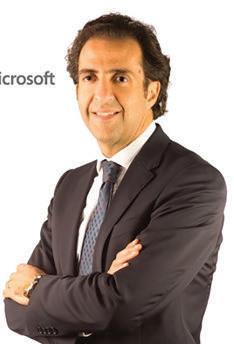
Few of these advances can occur without the cloud. It is the toolbox of innovators, host to a vast array of technologies that allow any business to behave as a large-scale enterprise in the digital arena. Barriers to entry, in terms of skills, capital, and geography, are lowered and the scope for collaboration, productivity and cost-cutting is raised. Cost-cutting is of particular interest to regional FSI entities, the stakeholders of which are deeply concerned about financial sustainability.
The Middle East and Africa is home to one of the world’s most innovative financial services industries. This reputation dates to before the pandemic. A 2018 study from The Economist Intelligence Unit showed how regional bankers, concerned about new industry entrants’ ability to build market share, had started to develop new differentiating offerings. Nearly two thirds (65%) of those polled said this was their strategy. And 57% said they were now viewing their services as a “digital ecosystem” with more than half prepared to engage in open banking, where FSIs expose their services to third-party developers through APIs.
Around the same time, Microsoft conducted a cross-industry survey to assess the relative maturity of MEA businesses regarding artificial intelligence. We found that the FSI sector was ahead of others, with 44% of organizations found to be in the two most mature stages of adoption.
McKinsey research on the African banking segment from 2021 showed that less than 10% of IT budgets was available for value-adding business functionality, with 70% of technology capacity dedicated to maintenance of legacy infrastructure, troubleshooting and daily operations. However, the study suggested that banks could cut costs by more than 20% through cloud migration, and by “pulling on modern levers” they could double the productivity of the IT function.
As with most industries, FSI was upended by the pandemic. Aware that regulators were becoming increasingly tolerant of cloud models, banks migrated in large numbers over the past two years. But their attraction to the cloud went beyond mere business continuity and cost-cutting. They saw the cloud as a foundation for innovation and for unlocking value creation.
Beset on all sides by new entrants, including fintech firms and neo-banks, they saw an opportunity to build more convenient,
always-on, responsive, and engaging customer experiences. This race to capture consumers’ hearts and minds in an overbanked region is a tough proposition. Banks must differentiate themselves at a service level, with convenience and individualisation being important benchmarks. They must offer the right products at the right time for the customer and provide a full range of engagement channels – digital, mobile, phone – while ensuring consistent service across all of them.
Regional banks enjoy a strong financial position. A McKinsey study concentrating on the Middle East shows corporate banks here to have average returns on equity of more than 12%, significantly outpacing European institutions, which average around 7%. But this does not mean that banks across MEA have become complacent. The rise of non-traditional players and FinTech, especially in Arab Gulf nations such as the UAE and Saudi, is forcing FSI players to embrace new business models that blend third-party products and capabilities with their own, especially since evidence suggests this is what customers want.
A Deloitte study shows 82% of Middle Eastern banking customers are willing to leverage FinTech to address their banking needs. Financial institutions have an opportunity, through the cloud, to build entire suites of services around core offerings. Consider the home loan. What if a bank could offer access to services such as property search, relocation, decorating and maintenance to every customer who sought a mortgage? Examples such as this become easier to imagine in the digital era with cloud services at our disposal.
Another realm that is simplified and strengthened by the cloud is that of security – a critical concern for FSIs and their regulators. As COVID and its associated lockdowns amplified the online spending of millions of the region’s shoppers, banks and their CISO’s have become inordinately occupied with the protection of proprietary and customer data. Identity compromise
and fraud are commonplace. And on top of increased consumer activity, the attack surface has swelled under the influence of video conferencing, chat, and collaboration tools, not to mention the escalation of shadow IT, all of which were brought about by remote work.
Any compromised user constitutes a risk to their bank, and this is where the cloud becomes a boon. Its architecture allows hyperscale providers such as Microsoft to leverage signal, intelligence and operational experience at scale to harden endpoints, applications and
constitute the potential for material damage to the business. And when COVID forced a hasty migration to new work models, checks and balances were often neglected in favour of business continuity.
Once again, the cloud can help. The Microsoft Cloud for Financial Services accommodates a range of complex control frameworks and regulatory requirements. It houses the industry’s largest compliance portfolio, including external certifications covering more than 75 compliance jurisdictions. We address the most rigorous security, regulatory and privacy
services. Microsoft Security solutions are trained on 8 trillion daily threat signals and the insights of 3, 500 security experts. Custom algorithms and machine learning models make and learn from billions of queries each day. This leads to faster identification of threats and more efficient responses.
The region’s regulatory labyrinth is growing. The UAE’s recently enacted Personal Data Protection Law, which outlines “governance for data management and protection and defines the rights and duties of all parties concerned”, is just one example of regulation with which every UAE business must comply. The Consumer Protection Law of 2020, which requires responsible entities to ensure that consumers have access to a “safe environment when purchasing a good or receiving a service”, is another. Along with compliance goes risk management – a central tenet within the FSI industry, where misconduct, errors, and oversights
demands in partnership with the financial services industry and through engagement with regulators.
While it is true that risk is becoming increasingly difficult to predict, financial institutions are still under enormous pressure to foresee and mitigate it. Beyond the threat actor and the risk to data, climate-related challenges and the rise of environmental, social and governance (ESG) require financial institutions to leverage data and technology to improve their risk management.
The cloud is now the natural home for regional FSI organisations. Its scalability ensures business continuity.
Its architecture paves the way for cost efficiencies and enhanced productivity. Its flexibility allows the development of niche offerings that enhance customer experiences. And its advanced technologies provide security and allow tighter risk management. The future of the regional FSI industry will be written in the cloud.
(HNWI) clients. Globally, the wealth management segment is evolving, and the Middle East market is no exception.
According to BlackRock, COVID-19 accelerated digitisation of processes and client propositions, a shift towards centralised portfolio and risk management amid increasing focus on responsible investing while emphasizing the role of wealth managers in supporting socioeconomic ecosystems.
Digital transformation has been a key battleground for financial services providers in the Middle East region—a competition that was intensified by the outbreak of the coronavirus more than two years ago. The ability to swiftly innovate and effectively meet client expectations while capturing future growth segments is turning into a core asset in the wealth management sector.
“The acceleration in market and competitive wealth management trends, along with the confidence many firms have gained in their remote delivery capability, have set the stage for a strategic reset of firm operating models,” said Deloitte.

The pandemic accelerated pre-existing trends in wealth management by changing the way wealth managers deliver advice and serve their high-net-worth individual
Wealth managers are being confronted by the task of balancing the traditional approach to risk management with the need to respond quickly to the ongoing health crisis that has created massive changes to their operating environment.
Meanwhile, the changes in demographics, technological innovations, environment and social behaviours have set the ground for rapid transformation in the wealth management industry.
The ability to swiftly innovate and effectively meet client expectations while capturing future growth segments is turning into a core asset in the wealth management sector
Wealth management is typically seen as embodying old-fashioned values and providing discrete, tailored service attributes that remain valuable parts of the business, but McKinsey said for many clients, these qualities are “no longer sufficient”.
Though incumbent banks in the Middle East region are working on strengthening their wealth management businesses, they are facing growing competition from wealth technology platforms that are developing advanced business-to-business (B2B) and business-to-consumer (B2C) digital solutions.
“The client experience has been the prompt for the digital transformation journey of wealth management companies,” said Deloitte.
The growth of automated wealth managers or Robo-advisors is revolutionising the wealth management industry with unprecedented force. Kenneth Research said that the Middle East and Africa’s Robo-advisory market is projected to grow at an overall compound annual growth rate (CAGR) of 55.9% to $3.8 billion by 2023. Robo-advisory platforms in the region are quickly taking off, with several homegrown players having recently joined the onrush.
Commercial Bank of Dubai unveiled its Robo-advisory app CBD Investr in April 2021. The platform offers the bank’s clients access to globally diversified and personalized portfolios of stocks, bonds, and other asset classes using low-cost exchange-traded funds.
CBD Investr is competing with Sarwa and FinaMaze in the UAE. Sarwa offers curated portfolios, including conventional, halal and bitcoin offerings while FinaMaze’s AI-powered hybrid Roboadvisory solution is used to identify the natural financial behaviour, risk appetite and goals of each investor.
The Robo-advisory solution provider launched two new smart portfolio themes, Cryptocurrency and Inflation Protection, in June and plans to expand its services to prime retail investors with a minimum of
$2,000 to invest. By leveraging algorithms to offer financial advice for a fraction of the price of a real-life client advisor, Roboadvisors are growing at a rapid pace, doubling their assets under management every few months.
Bahrain’s central bank issued directives on Robo-advisory in 2019 as the small Gulf state affirmed its position as the region’s leading digital financial hub. Meanwhile, Saudi Arabia’s Derayah Smart provides retail investors with access to a globally diversified and multi-assetsbased strategy managed by investment specialists. The platform’s Shariahcompliant competitor, Haseed Invest, provides investment opportunities in globally diversified Islamic assets using Exchange-Traded Funds (ETFs) and mutual funds.
The UAE and Saudi Arabia’s regulatory environments are driving the Robo-
advisory market growth in the Middle East and Africa region. The regulatory push for open Application Programming Interfaces (APIs) infrastructure across the region is expected to make it easier for wealth managers to deliver consolidated client views of multiple relationships.
The Abu Dhabi Global Market’s Financial Services Regulatory Authority issued its regulatory framework for digital investment managers operating in the financial hub in 2019—a move that was hailed by Moody’s. The rating agency said that the regulatory framework safeguards systemic stability through a well-regulated environment for fintechs.
Once a laggard in the adoption of technology, wealth management is accelerating digitalisation, deploying artificial intelligence (AI), Big Data, robotics and other innovative technologies to enhance client’s experience and trust—which is central to the industry’s relationships.
A coherent digital transformation plan will give firms a head start in leveraging stronger client relationships, reduced operating costs as well as enhanced risk management and regulatory compliance capabilities. “The changes are helping firms meet their regulatory obligations, boosting the productivity of wealth managers and lifting compressed margins,” said McKinsey.
The current operating environment is making it difficult for wealth managers to deliver the kind of inflation-beating returns that keep clients happy. The industry has
The acceleration in market and competitive wealth management trends, along with the confidence many firms have gained in their remote delivery capability, have set the stage for a strategic reset of firm operating models

entered a comparison phase where HNWIs are keen to shop around and do their own research.
Though the typical client in a developed market today is around the age of 65 years and is comfortable with digital technology, shifting demographics, evolving client behaviours, the rise in new innovative technologies and emerging disruptive competition are all reshaping the industry.
Incumbent banks should set their minds on eradicating the pain points that clients encounter when working with wealth managers to maintain a competitive edge and digital onboarding is a huge issue. Industry experts say onboarding a typical HNW client used to take two-thirds of regional firms well over two weeks and the process was not only lengthy but also arduous due to the paperwork involved as most wealth managers were yet to completely digitalised onboarding.
Similarly, automation, systems integration and interdepartmental collaboration stood at shockingly low levels and unnecessary delays loomed large even for clients with quite simple profiles, while for clients with more complex profiles onboarding is taking as much as six months.
Customer onboarding is the first contact that a new user has with the bank and the process should be intuitive, seamless, responsive and efficient. It is defined as the guidance of customers in the first steps of platform accessibility and a critical step in a customer’s journey with a financial institution as it leaves a long-lasting impression in the clients’ minds about how they perceive a financial institution.
Deloitte said that an automated onboarding process is a mutually beneficial situation offering speed, efficiency and convenience for the customers and freeing bankers for more
value-added tasks. The implementation of an automated customer onboarding process is an essential feature that determines whether or not a financial institution can obtain new customers.
The Middle East, one of the world’s hotbeds of wealth creation, has seen an acceleration in trends relating to succession planning, alternate investment vehicles, wealth preservation, digitalisation in wealth management and growing interest in sustainable investing.
Julius Baer said that there’s an emergence of the next generation of clients—a generation that looks beyond the traditional ways of wealth preservation, especially in the Gulf region.
Wealth managers are being confronted by the task of balancing the traditional approach to risk management with the need to respond quickly to the prolonged pandemic that has created massive changes to their operating environment.
“With the proliferation of investment products, digitalisation, the heterogeneous nature of client bases and the need to integrate strong sustainability criteria into their business, the wealth manager’s role has become even more complex,” said BNP Paribas.
Over the past two years, business ethics have moved to the forefront as metrics to identify how well a company is performing amid growing demands from investors that environmental, social and governance (ESG) issues be factored into their portfolios. The World Economic Forum (WEF) said in a report in January that HNWIs and family wealth are uniquely positioned to leverage private capital to drive growth in the ESG sector by supporting long-term societal goals and ambitions.
Wealth management is one of the most attractive sectors within the financial services sector, thanks to the business’ greater growth prospects, lower capital requirements and a higher return on equity (ROE) compared to most other retail banking businesses.
With the proliferation of investment products, digitalisation, the heterogeneous nature of client bases and the need to integrate strong sustainability criteria into their business, the wealth manager’s role has become even more complex
of
a shift towards
amid
on
while
the role of wealth managers in
At the beginning of 2022, several new Robo Advisory platforms were launched in GCC, can we expect to see many more coming online in the near future?
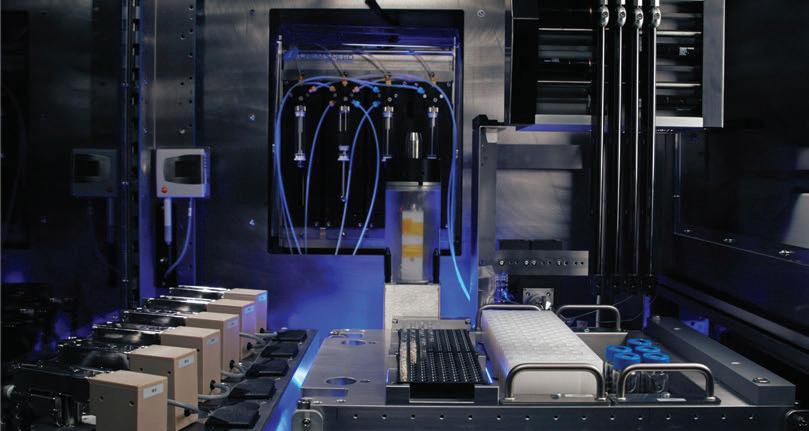
The first robo-advisors appeared in 2010 and the market has grown rapidly in recent years. We are seeing new products enter the market that are increasingly sophisticated or targeting different segments of the market. For example, robo-advisors targeting people interested in Islamic finance or ESGfocused investing are an example of how these platforms will segment the market; we will also see increasingly sophisticated use of artificial intelligence and machine learning as both these technologies and their applications to the financial world continue to evolve. The GCC will not be an exception and I believe that, in particular, the demographics of the Gulf, with its youthful digitally-native population, make it well suited to the adoption of robo advisory technologies.
In general, digital financial advisory can play multiple roles.
IBM AI powered autonomous lab Anthony Butler Chief Technology Officer, IBM Middle East and Africa provides a clear assessment of how Robo Advisory could bring more investors into the market, even benefiting human investment professionals and creating opportunities benefiting all players
Firstly, they can democratise access to financial advice for people who might otherwise not have access to a financial advisor or be able to afford their services. Someone who wants to invest passively today could simply install an app, set some broad investing objectives (such as growth vs income), some risk parameters, and then let the application manage. They don’t need to be able to read a balance sheet or perform technical analysis, yet they are able to invest in a way that is better informed than would be possible normally.
Secondly, these types of technologies can use artificial intelligence to provide investors with a broader and often richer set of insights than would be available if they were to attempt to do this themselves. For example, whilst analysis of company financial performance or share trading histories are widely available, there are an emerging class of insights based on alternative data sources that can help inform investment decisions but are very difficult for ordinary investors to process or get access to. For example, we have been working with different entities in the region to explore how weather data can influence company performance.
Thirdly, these technologies make possible a high degree of automation. A person could, for example, select an investment strategy from a catalogue, crowdsource the strategy, or create their own and have the platform automatically make investment decisions – within defined parameters – based on this strategy. The speed, ability to operate 24x7, and ability to ingest vast amounts of data to form decisions can put these platforms at an advantage to human investors who are time-constrained.

What impact has the development of Robo Advisory had on asset management and banking businesses?
There is an entire section of the market that was not able – for financial or other reasons – to get access to financial advisors and robo-advisors have played an important role in addressing that part of the market.
Whilst there are some pure-play robo advisory platforms, I am also seeing that hybrid approaches are common and offer a richer experience. For example, an investor might choose trading strategies of a set of human-defined offerings and the robo-advisor will then just execute or, as is often the case, the investor will still consult and engage with human advisors in addition to using a robo-advisor to trade within certain narrow parameters.
I am also seeing that there is a continuum of maturity where people may start with robo-advisors as their entry point into investing and then, as they become more sophisticated, their need for more bespoke advisory services increases. Given they are addressing a market that is often not served by banks or asset managers, it could be argued that deployment of robo-advisors can actually lead to growth in the classic part of the business as a subset of these users graduate to more sophisticated investment products. In this case, rather than replacing the role of financial advisors, robo-advisors could be a useful customer acquisition strategy for these higher value services.
Robo Advisors can monitor multiple markets 24x7, act immediately, and are not swayed by the normal human emotions that can sometimes cloud our judgement. They are digitallynative and therefore can be accessed and used anywhere in the world and at any time. Their trading or investment heuristics are often pre-defined, based on some objective function, or based on a catalogue of trading strategies that a user can choose from. This makes them a much simpler and lower cost way for someone with no investment experience to enter the market.
Human advisors are, unlike robo advisors, better able to understand and build strategies that are far more bespoke and take into account factors that a robo advisor would find it difficult to accommodate. For example, a person’s family situation, complex tax scenarios, or ethical and other constraints on the types of fund or equity that they will invest in. As robo advisors will typically address a broad market, there are often products, strategies or opportunities that only a human advisor would be aware of or be able to discern. That said, this level of advisory typically comes at a higher price to robo-advisors.
They don’t need to be able to read a balance sheet or perform technical analysis, yet they are able to invest in a way that is better informed than would be possible normallyAnthony Butler Chief Technology Officer, IBM Middle East and Africa
team-based approach puts together investment experts to address every unique requirement of yours.
With a legacy of over 50 years, we combine the best in expertise & experience as the oldest and largest banking specialists.
With a legacy of over 50 years, we combine the best in expertise & experience as the oldest and largest banking specialists.
Private Banking - Privileges & Benefits
Our team-based approach puts together wealth and investment experts to address each and every unique requirement of yours.
Our team-based approach wealth and investment each and every unique requirement
Seamless access to a wide range of solutions and a digital first ethos that leverages technology to bring you bespoke financial solutions.
wide range of solutions ranging investment portfolios, wealth legacy planning including set up foundations. banking services outside UAE
Seamless access to a wide range of solutions and a digital first ethos that leverages technology to bring you bespoke financial solutions.
We offer a wide range of solutions ranging from bespoke investment portfolios, wealth preservation, legacy planning including set up of trusts and foundations.
We offer a wide range from bespoke investment preservation, legacy planning of trusts and foundations.
Exclusive Benefits
Preferential pricing across all our products with complementary banking services
Preferential pricing across all our products with complementary banking services
process for 10 year UAE golden visa

Dedicated desk to help and guide you through application process for 10 year UAE golden visa
Dedicated desk to help and guide you through application process for 10 year
Invitation only experience to exclusive premium events in and outside UAE
Invitation only experience to exclusive premium events in and outside UAE
We are the first to adopt cutting edge technology, lead the region’s foray into digital banking and get globally recognised for our game changing initiatives
We are the first to adopt cutting edge technology, lead the region’s foray into digital globally recognised for our game changing initiatives
Seamless account opening and on-boarding
foray into digital banking and get Award winning proprietary investment trading platform with access to over 400 funds worldwide
Anytime, anywhere banking including transfer of money and unlimited Forex service
Seamless account opening and on-boarding
Easily access your special privileges as Private Banking Customer
Anytime, anywhere banking including transfer of money and unlimited Forex service
Award winning proprietary investment trading platform with access to over 400 funds worldwide
Easily access your special privileges as Private Banking Customer
Award investment platform over 400
FOR THE WORLD, YOU HAVE ARRIVED. FOR YOU, YET ANOTHER JOURNEY BEGINS.
FOR THE WORLD, YOU HAVE ARRIVED. FOR YOU, YET ANOTHER JOURNEY BEGINS.
Family office Services
Mortgage and Real estate financing
In all major currencies for residents and non-residents
MENA region's first comprehensive dedicated family office
Dynamic financing to help you acquire, diversify and leverage a wide range of assets
Lombard Lending
A lending solution that creates liquidity against your investment portfolio
Specially tailored products including equity release and commercial financing for both resident and non-UAE residents
Offshore Accounts & Wealth Services
Full Range of investment solutions
Our investment solutions help you invest with confidence, navigate uncertainty and explore potential opportunities in all market conditions
With a legacy of over 50 years, we combine the best in expertise & experience as the oldest and largest banking specialists.
Mutual Funds, Equities FX & Commodities
With a legacy of over 50 years, we combine the best in expertise & experience as the oldest and largest banking specialists.
Structured Products
Seamless access to a wide range of solutions and a digital first ethos that leverages technology to bring you bespoke financial solutions.
Mashreq Capital Funds
Fixed Income Solutions
Exclusive Benefits
Private Banking - Privileges & Benefits
Our team-based approach puts together wealth and investment experts to address each and every unique requirement of yours.
Seamless access to a wide range of solutions and a digital first ethos that leverages technology to bring you bespoke financial solutions.
We offer a wide range of solutions ranging from bespoke investment portfolios, wealth preservation, legacy planning including set up of trusts and foundations.
Global Portfolio and Discretionary Mandates
Exclusive Benefits
Preferential pricing across all our products with complementary banking services
Our team-based wealth and investment each and every unique
We offer a wide range from bespoke investment preservation, legacy of trusts and foundations.
Preferential pricing across all our products with complementary banking
Dedicated desk to help and guide you through application process for 10 year UAE golden visa
Dedicated desk to help and guide you through application process for
Private Banking
Business Banking
Invitation only experience to exclusive premium events in and outside UAE
A team of experts to help with settling needs such as business setup, housing, education and retirement through our preferred partners
Corporate Banking
Invitation only experience to exclusive premium events in and outside
Dedicated Relationship Manager to help you with your investment, wealth & legacy planning
End to end solutions tailored to meet the needs of your business

Fully integrated services on Investment banking, Financing, treasury & Capital Markets
We are the first to adopt cutting edge technology, lead the region’s foray into digital banking and get globally recognised for our game changing initiatives
We are the first to adopt cutting edge technology, lead the region’s foray into globally recognised for our game changing initiatives
A worldwide reach in over 12 locations to match your ambitions
Seamless account opening and on-boarding
Anytime, anywhere banking including transfer of money and unlimited Forex service
Please scan to have us call you back
Easily access your special privileges as Private Banking Customer
Seamless account opening and on-boarding
To reach out to our call centre call 800 PRIVATE (7748283) from within UAE or +971 4 424 4466 from outside UAE
Anytime, anywhere banking including transfer of money and unlimited Forex service
Award winning proprietary investment trading platform with access to over 400 funds worldwide
Easily access your special privileges as Private Banking Customer
over

The Aviation Annual Gala Evening (AAGE), the region’s leading invite only event for Senior Aviation will take place on the 7th December 2022. The event will again take place on an exclusive 220ft megayacht berthed outside Pier 7, Dubai Marina. The deluxe venue is lavishly designed with custom-built interiors and first-class amenities. Guests will enjoy an amazing cruise along Dubai’s shoreline, with captivating views of the famous Palm Island, the Dubai skyline and Iconic buildings such as the Burj Al Arab. Guests will also be entertained throughout the evening by a live band and special entertainment.
The Aviation Innovation Awards which also takes place during the Gala Evening will recognize some of the region’s most outstanding aviation individuals and organizations. The awards will honour exceptional technological, operational and sustainability innovations. The Gala Evening and Awards attracts a wide variety of leaders from the Middle East and internationally. For more information on the event visit www.aviationgala.com or contact ken@cme-media.com













positioning and information about player performance and statistics. In addition, a new Emirates Fly Better Moments content strand will showcase exciting moments from tournaments for fans via the Tour’s digital platforms.
Emirates is one of the world’s largest international airlines connecting customers to more than 130 destinations across six continents via Dubai with its modern fleet of Boeing 777 and Airbus A380 aircraft. The partnership between Emirates and the DP World Tour stretches back over 30 years, after Emirates became Title Partner of the Dubai Desert Classic in 1989. Emirates then became a partner of the season ending DP World Tour Championship, Dubai in 2009, and became an Official Tour Partner and Official Airline of the Tour in 2014.
Sir Tim Clark, President Emirates Airline said: “We’re delighted to extend our partnership with the DP World Tour. The tour continues to grow in prominence, attracting the best international golf players and providing us a platform to engage with golf fans on a global scale. Fittingly, the DP World Tour Championship culminates in Dubai, bringing visitors and global attention to Emirates’ home city which has also grown to become one of the world’s leading golfing destinations.”
The DP World Tour and Emirates have signed an extension to their partnership agreement that will see the international airline remain an Official Partner of golf’s DP World Tour until the end of the 2024 season.
As part of the agreement, Emirates will benefit from highly visible branding across 21 DP World Tour tournaments and the Tour’s media and digital platforms, as well as enjoying access to the Tour’s premium hospitality services and exclusive Pro-Am experiences. Emirates will also have Official Tournament Partner status at 14 events on the DP World Tour calendar each season. Emirates

Since 2009, the airline has carried more than 600 professional golfers to Dubai to play in the season ending DP World Tour Championship, bringing together more than 200,000 golf enthusiasts to watch the exciting tournament.
will continue to be a partner of the Tour’s Virtual Eye, which is an animated graphics system delivered through live television broadcasts, providing real-time
Guy Kinnings, Deputy Chief Executive and Chief Commercial Officer of the European Tour group, added: “Emirates are one of our longest serving partners and I’m delighted that they have decided to extend our partnership until the end of the 2024 season. As an airline that connects the world, they continue to benefit from aligning their brand with a truly global Tour - and our footprint continues to expand into new countries each season. We also benefit from Emirates’ extensive sports partnerships experience and proven track record in connecting sports fans to their passion.”




educational professionals from over 70 countries, and more than 250 leading educational brands showcasing the latest and most innovative products and solutions in the market
students in the GCC as per ISC Research, the leading producer of independent data, trends, and intelligence on the global English-medium international schools’ market. “There’s been a 4.7% increase in the number of students in the region from July 2017 to July 2022 and research tells us that this is a key area of growth in the coming years. A vital aspect of the show is to find ways to serve this sector better by providing networking platforms with key decision-makers, opportunities to learn best practices from around the world, and access to the most up-to-date technology and solutions to enhance current learning environments,” said Sarah Palmer, Brand Director, Tarsus, organisers of the GESS portfolio of education exhibitions and conferences all over the world.
GESS (Global Educational Supplies and Solutions) Dubai, organised by Tarsus in partnership with the Ministry of Education, is set to deliver its 15th edition from November 15 to 17, 2022 at Sheikh Saeed Halls, Dubai World Trade Centre. As the biggest education exhibition in the Middle East region with an extensive conference programme and an awards ceremony, GESS Dubai is poised to attract more than
6,000 educational professionals from over 70 countries, and more than 250 leading educational brands showcasing the latest and most innovative products and solutions in the market and bringing thought-leaders sparking new ideas and challenging the way stakeholders look at the future of education.

A critical point to be addressed in the 2022 edition of GESS Dubai is the growing and evolving demands of the 1.5 million
Among the international exhibitors expected to showcase at GESS Dubai are Microsoft, Schoolbox, OneOrigin, Soundtrap for Education by Spotify, Promethean, BenQ Amazon Web Services, Viewsonic and more. This year will also see the largest showcase of American and Canadian companies with the likes of EZ-Robot, SMART Technologies, TehnoKids Inc, Notion Wave, Scholastic Inc, Classlink, Edpuzzle, Cypher Learning, Nearpod, Piedmont Payment Services, Speechace, Van Robotics, VIRCO USA, Amplify and Compro Technologies; and an unmissable area, the Start-up Pavilion, with new companies bringing their one-ona-kind technologies to the show.
In addition, the conference programme is broken down into conference streams that will feature world-renowned experts offering free-to-attend seminars, live case studies, workshops and panel discussions designed to help educators achieve excellence in their classrooms. Two of the
Dubai is poised to attract more than
world-class speakers who are presenting for the first time in the Middle East are Rob Houben, Founder of robhouben.com and Gavin McCormack, Co-Founder of Up-School. Rob Houben is an educational leader and change-maker who in 2015, got involved with Agora. With five colleagues and 60 students, they started working at this governmentfunded secondary school without using timetables, courses, or age groups. They began with a simple question: What do you want to make, do or learn? And whatever the answer was, they went from there. Today, there are 20 Agora schools in The Netherlands and Belgium. On the other hand, Gavin McCormack, a trained Montessori teacher, children’s author, teacher trainer, philanthropist and school principal, will be covering topics such as educating with intention, educational reform with a strong emphasis on Montessori within the home and creating a harmony between the school and home environments to reach a student’s full potential.
In the Future Transformation Room, thought-provoking topics will include Reinventing the Learning Experience with Artificial Intelligence by Basil Ayass, Education Lead – Middle East, Turkey and Africa at Google, Preparing Students for the Metaverse by Niall Statham, Head

of Innovation at Hartland Internatioanal School, Music Education: The Missing Myelination Link by Ross Garrod, Founder and CEO of Practice Pal, Integrating gaming and eSports in Education by Baz Nijjar, Principal Advisor – Education Technology at GEMS Education, Emerging Tech Integration in K12 – Why? When? How? by Sreejit Chakrabarty, Director –Artificial Intelligence & Robotics at GEMS Education, Using Chatbots in Education by Mohammed Alhohabi, Consultant at National eLearning Center
Another room that is a key interest area is the Wellbeing Room. Confirmed in the roster of speakers are Dr Waleed Ahmed, Consultant Psychiatrist at Priory Wellbeing Centre (Social Media and Mental Wellbeing), May Zalat, Head of Education of Blossom Nurseries – Babilou Middle East (Wellbeing & Inclusion in the Early Years), Rania Badreldin, Happiness Consultant, Transformational Speaker and Writer, Seasoned Social Entrepreneur, NLP and Hypnosis Master Practitioner at The Family Hub (Transforming Education Through Happiness) and Mark Samways, Director of Wellbeing at Free Spirit Collective (Alleviating Stress and Burnout in the Educational Workspace).
Other rooms that one must look
forward to include The Global Learning Room, where the latest innovations, education issues and solutions are tackled; The Leaders in Education Conference, a two-day programme open to members of Leaders in Education where sessions look at the challenges and skills required to succeed in senior positions; The Skills Development Training, a fresh feature for this year’s show which will be a series of certified workshops designed for educators looking to skill up their toolset; and another new space for 2022, the Growth Mindset Room that promises to unpack benefits of learning from mistakes and change and of adapting gracefully even with setbacks.
A highly anticipated part of the event is the celebration of the education industry’s brightest at the GESS Education Awards. Divided into two sections: one for Suppliers and Distributors and another for Teachers, Schools and Educational Professionals, the awards will be held on November 16 at The H Hotel, Dubai.
Registration for GESS Dubai is free and can now be done online at www.gessdubai. com, giving education professionals access to all three days of Continuing Professional Development (CPD) accredited conference programmes and exhibition.

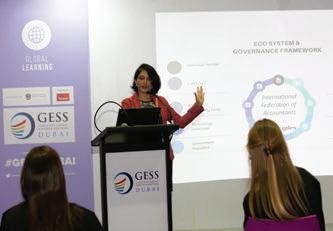


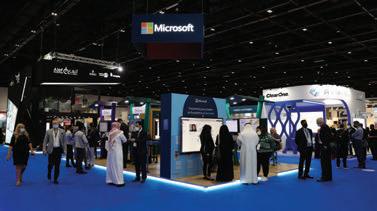
Aymen Daoud Regional Head, North & West Africa at Backbase tells us about the growing Fintech scene in Egypt, underlying its importance in the nation’s banking sector

You can call it a miracle on the Nile. In less than a decade, Egypt has experienced an astonishing digital transformation of its financial sector. In 2014 there were a grand total of two fintech start-ups in the whole of Egypt, while in 2021 that figure reached 112. Investor interest has also been piqued, with venture capital putting only $1 million across three deals in the sector in 2017, but almost $160 million over 32 deals last year, with money pouring in both from within Egypt and from abroad.
This status was further consolidated in 2020 when e-payment company Fawry became Egypt’s first tech unicorn, showing just how high the standard can be set. This remarkable growth made Egypt stand out in the region, with only established powerhouses like Nigeria and South Africa having a bigger fintech market in Africa.
As Egypt’s fintech ecosystem grows, its traditional banking sector is faced with both challenges and opportunities. On the one hand, banks are clearly feeling the pressure: Less than 30% of Egyptians have a bank account, but in just a few years the percentage of fintech users in Egypt reached almost 10%. Furthermore, the ease of use and flexibility of fintech raised user expectations across the board.
On the other hand, banks should be delighted to have so much attention drawn to their sector. Fintechs made personal finance hot and everyone in the industry stands to benefit from that. A sustained reduction in the number of unbanked Egyptians will expand the banking market, creating new vectors of growth for fintech and banks alike.
And while legislative progress could be faster, there are reasons to feel optimistic. A new banking law which was ratified back in 2020 and will allow the launch of digital banks for the first time finally came into effect in May of this year, with several of Egypt’s largest banks already applying for digital licences.
Commercial banks as well have taken notice and become more involved in the field of digital finance. Earlier this year Banque Misr, National Bank of Egypt and Banque du Caire, three of the country’s top national banks, partnered with Global Ventures, a leading firm in the realm of venture capital, to launch a new venture called “Nclude”. With $100 million in starting money, Nclude is aimed at accelerating fintech development and investing in young innovators.
The advantages brought by fintech to the banking table were not lost on Egypt’s highest institutions. The Central Bank quickly recognized the potential, launching a number of initiatives meant to facilitate the sector’s expansion. Perhaps the most important of these is the 2019 Fintech and Innovation Strategy, which lays out a roadmap meant to better identify, cultivate, fund, regulate and govern the burgeoning talent on the fintech scene.
Egyptian banks must now continue this process of integration between fintech and traditional banking. When it comes to fintech in Egypt, the forces of disruption are not a one-way street. Through initiatives like Nclude, banks are already joining the fray and betting on the future of fintech, avoiding the familiar pitfalls of industry protectionism.
Banks need to leverage this opportunity ever further. The fintech train is moving full steam ahead in Egypt and the surest way to maintain its momentum is to have both fintech and banks busy shovelling coal in the boiler room. The destination is worth it for everybody.
Fintechs made personal finance hot and everyone in the industry stands to benefit from that




As the world becomes increasingly connected, so do the connectivity needs of people, businesses and nations.
With increasing digitalization, remote offices, field operations, and science and research missions are all in need of a reliable connectivity service beyond the reach of terrestrial support.
Eutelsat delivers global network solutions for unlimited reach in a world where connectivity is a prerequisite for success.

